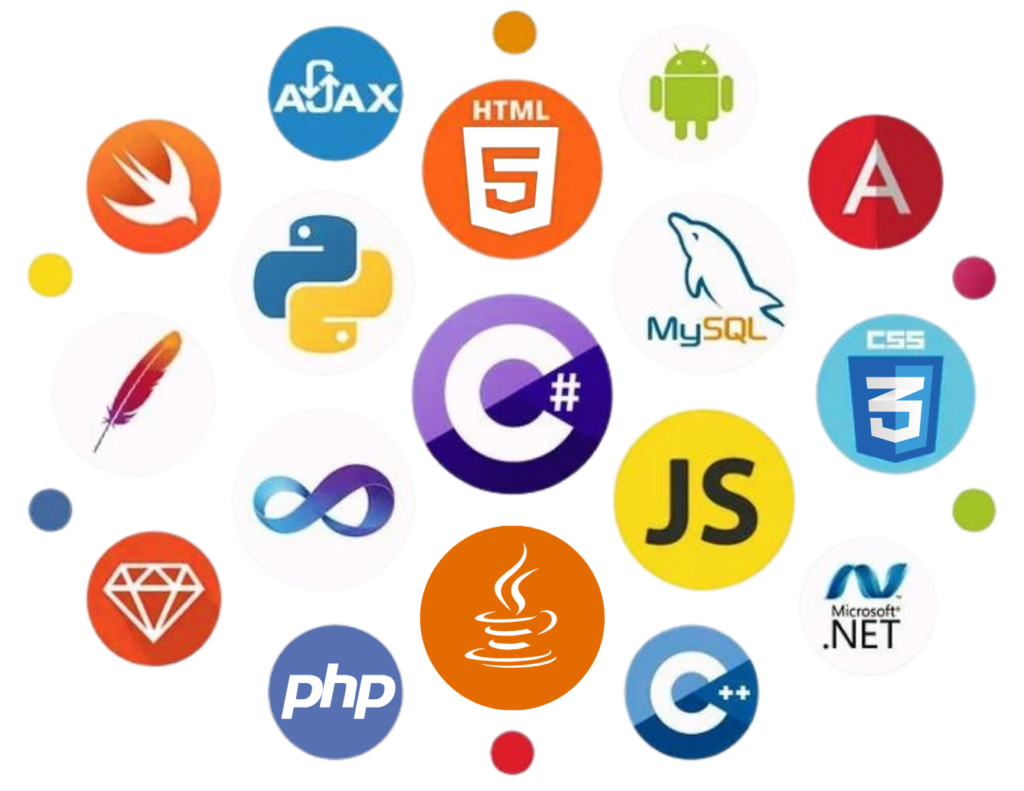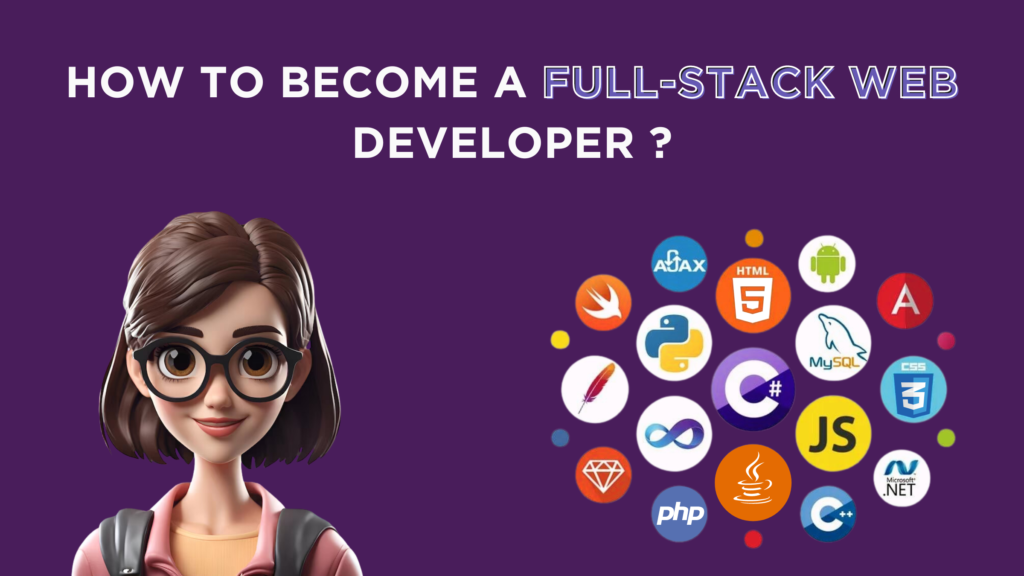Interested in becoming a full-stack web developer but struggling to choose the right framework for web applications? Selecting the correct framework is vital for boosting your career in web development. In the early stages, it’s common to lack the knowledge needed to start with the right framework or programming language. That’s why we’ve prepared this topic to introduce you to the best open-source framework and programming language that could launch your web development career to new heights.
Make a moment to read this post for an overview of the technologies to consider if you want to become a full-stack developer this year. The list will guide you through the web development landscape. Read the following sections carefully to educate yourself about the skills to pursue in web development.

Foundation of Web Development
If you’re pursuing a career in web application development, it’s crucial to be familiar with various languages that can enhance your future prospects. Read on to learn more about them in the following section
1. HTML & CSS
HTML and CSS are not frameworks; they are fundamental to learning for website development. To excel in development, you must be proficient in both. They serve as the foundation for everything. HTML is used to define the structure of the website, while CSS, or cascading style sheet, determines the font and color layout of your website.
Start by learning HTML, and once you’ve mastered it, move on to CSS. These two are the most crucial elements for any web developer.
2. JavaScript
JavaScript is a programming language that adds dynamic features to your website and is derived from the ECMA script specification. Learning JavaScript from scratch ensures a promising career in web development.
Frameworks like Angular JS and React JS are built on the foundation of JavaScript. So, if you aim to learn Angular JS, Node JS, and React JS, having a good understanding of JavaScript is crucial. Without mastering the basics of JavaScript, learning various frameworks can be challenging.
JavaScript is easy to learn, but there are advanced features that require practice and time to master. Recent additions like shared memory and atomic operations are advanced features. If these sound overwhelming, start with the basics. Numerous online platforms offer JavaScript courses from scratch. Enroll in one to ensure you have enough knowledge for a smooth journey in web development.”
3. Typescript
The recent popularity of the Angular Framework has sparked interest in TypeScript. If you’re looking to learn Angular, it’s a good idea to explore TypeScript as well.
TypeScript and JavaScript are used together in web development. While learning JavaScript, don’t overlook TypeScript, as both languages enable different features in web development. Working with an editor like Visual Studio Code enhances the experience of using the TypeScript programming language.
4. Python
There is no doubt about the popularity of the Python programming language – it’s one of the most in-demand languages. If you haven’t explored it yet, now is the perfect time. Learning Python opens up a wide range of use cases.
You can deploy various features, including GUI applications, web applications, and command-line scripts, by mastering this language. Additionally, Python is a driving force in scientific computing. Make sure to delve into frameworks like Django and Flask. Don’t limit yourself to just learning the Python programming language.
Front-End Frameworks That You Should Focus On Learning?
Now that you have a foundation and understanding of various programming languages for mastering web development, let’s delve into the front-end frameworks you should focus on for a promising career in the field.
1. Vue
Vue is a highly popular web development framework that gained widespread acclaim in 2019. It’s a user-friendly front-end framework, particularly useful for handling small-sized projects.
Learning Vue provides quick and effective results. Companies are increasingly adding Vue JS to their tech stacks, and the framework has seen significant growth in the past year.
2. React
React is a highly popular JavaScript library for building user interfaces, creating interactive and dynamic web applications. This component-based framework is especially powerful for constructing single-page applications. If you haven’t learned React yet, consider adding it to your skillset.
Mastering this open-source front-end framework is valuable. After becoming proficient in React, you can then explore Redux, a tool that enhances your ability to build complex web applications.
3. Angular
Angular is a well-known front-end framework used for building client applications. Having a basic understanding of HTML and JavaScript is essential for working with this framework. Angular addresses development challenges by implementing integrated best practices, end-to-end tooling, and dependency injection.
Last year, Angular stood out as one of the most popular frameworks for creating single-page applications. It continues to evolve with the addition of new features, catching the attention of many developers.
4. Svelte
Learning the Svelte framework offers a fresh perspective on JavaScript-based web development. Unlike other front-end frameworks, Svelte handles compiler steps during development, eliminating the need to deliver framework code to the client. It can generate highly optimized JavaScript code directly interpretable by the browser. This means there’s no need for additional loading libraries for the web application to function
Knowing About Server-Side Rendering
In web development, server-side rendering is a crucial topic to focus on. It involves preparing and delivering the webpage’s outcome on the server before sending it to the browser.
1. Server-Side Rendering
It significantly reduces the effort required on the client side and makes the web application faster. The combination of React or Vue comes into play in server-side rendering.
2. Next.JS
Next.js is a highly popular framework for server-side rendering, based on React and JavaScript. It’s particularly favored by companies working on cloud computing projects. This modern framework comes with many features, including server rendering, automatic code-splitting, and integration with webpack.
3. Nuxt.JS
Nuxt.js is a well-known server-side rendering framework and static site generator based on Vue.js. It’s an open-source framework offering various build options, including creating standard single-page applications (SPAs), generating static web pages, and building a server for a single-page application.
Back-End Frameworks to Know
Now that you’ve learned about programming languages and front-end frameworks for web development, let’s dive into backend frameworks. When choosing a backend framework, you’ll encounter multiple options, but two of the most popular ones are Django and Node.js.
The backend is where these frameworks run, handling server-side operations and generating HTML, JSON, etc.
If you’re solely focusing on front-end frameworks, adding a backend framework to your skillset might not be necessary. However, for a holistic understanding, it’s beneficial to at least explore one and grasp the basics of how backend frameworks operate.
1. Node JS
Node.js, a popular JavaScript framework, allows you to execute code on the backend. However, before diving into Node.js, it’s essential to have a strong foundation in the JavaScript programming language. Without sufficient knowledge of JavaScript, you might find it challenging to quickly grasp the concepts of Node.js development.
2. Django
Django is a well-known framework based on the Python programming language. Before diving into Django, it’s crucial to have basic skills in the Python programming language.
Learning Django can address various use cases effectively. Ensure you have a solid understanding of the Python programming language, as it will facilitate the learning process for this framework, allowing you to grasp it quickly.
Conclusion
There is no doubt in the fact that development skills are in high demand in the Today’s World. If you’re finding it challenging to start your career, take your time to carefully choose the right programming language and framework.
Web development is an exciting field where you can continuously learn new skills. If you’re already experienced in web development, consider expanding your skill set by staying updated on the latest technologies and frameworks.


1 Comment
Pingback: Mastering Web Development: Your Ultimate Roadmap to Success | Coding Stella